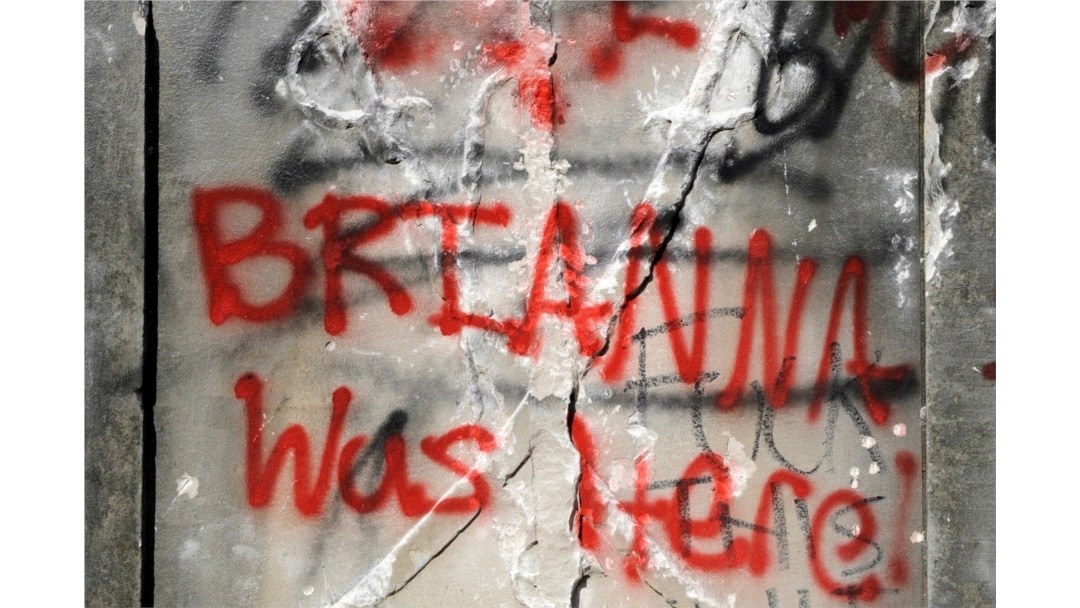The street protests that flooded American cities have largely ended, and a new administration is settling in in Washington, but the Black Lives Matter movement that regained national attention last summer in response to a series of police killings last summer has not gone away.
In some places, it has simply moved into a new phase, such as Birmingham, Alabama, where Jilisa Milton, who co-founded the historic city’s BLM chapter, started a coalition to gauge what people in her community think needs the most financial attention from local government.

Graffiti is show on the damaged base of a Confederate memorial that was removed overnight in Birmingham, Ala., on June 2, 2020.
“We started a coalition called People's Budget Birmingham,” Milton told VOA, explaining that similar coalitions had been started by local BLM chapters around the United States.
The coalition held multiple in-depth conversations with members of the community before presenting to the local government collective opinions on how money should be allocated to police departments, libraries and other institutions.
Milton said the coalition was a “good way of making sure our message was heard.”
Grassroots activists and organizers are mounting similar efforts around the country, seeking to maintain the momentum and heightened awareness of racial injustice that followed the death in police custody of George Floyd.
In St. Louis, Missouri, one such coalition — the People’s Plan — was built years ago.
“We have a chance to reshape public policy, allowing us to shift outcomes and build a new vision for our city that is truly equitable, sustainable and inclusive. The People’s Plan will allow us to do just that,” the plan’s website explains.
Aaron Rogers, a faith leader and activist in the St. Louis area, told VOA that through community efforts such as these, his city has seen significant systemic changes.
In this Aug. 5, 2020, file photo, Activist Cori Bush speaks during a news conference, Aug. 5, 2020, in St. Louis.
“We’ve seen radical movements for turning over incumbent power and putting young people into those positions. Cori Bush is one of the prime examples of that,” Rogers said, referring to the social justice activist and nurse now serving as the district's congresswoman in Washington.
Rogers said changing the elected officials in his community has led to changing some policies.
In August of last year, after months of campaigning from local activists, a medium-security prison known as the “Workhouse,” notorious for its poor living conditions, was closed.
“We were able to change that — a miraculous thing people didn’t think would happen,” Rogers said.
In 2014, Michael Brown, then 18, was fatally shot in Ferguson, a suburb of St. Louis. Rogers says changes that are happening now, seven years after the city made national headlines and erupted in protests, are built on years of organizing.
“The snowball is just getting bigger. And as long as the activists keep pushing, I think we'll finally round the curve,” he said.
Similarly, Milton in Birmingham said that calls to defund police departments across the country, which became a well-known demand of the movement in 2020, have been discussed since she joined Black Lives Matter in 2016.
The phrase defunding the police, for most protesters, means a reallocation of police funding to social services.
A demonstrator holds a "Black Lives Matter" flag during a protest at the state Capitol in Sacramento, Calif., Jan. 20, 2021.
Activists like Milton and Rogers say that it’s vital to look at the movement for Black Lives from a local perspective.
“People don't always know that they can contribute in different ways,” Milton said.
“There's so many really tangible ways that a movement can be supported,” she added.
“For people outside of activist communities, it’s voting. It’s staying engaged and voting, not just on a national level, but also on the local level,” Rogers said.

